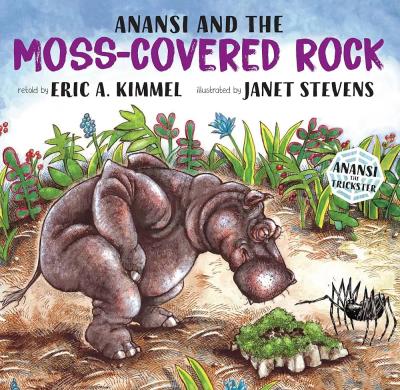
- Animal Books
- Trickster Books
- Funny Books
- Folklore Books
- Eric A Kimmel
- Janet Stevens
- 1988
- Values Books
- Multicultural Books
Previous Review
The Dark
Next Review
Moo, Baa, La La La!
As an Amazon Associate, we earn from qualifying purchases. This means that
if you click on an affiliate link and make a purchase, we may earn a small
commission at no extra cost to you. Your support helps keep this site
running and is greatly appreciated!

